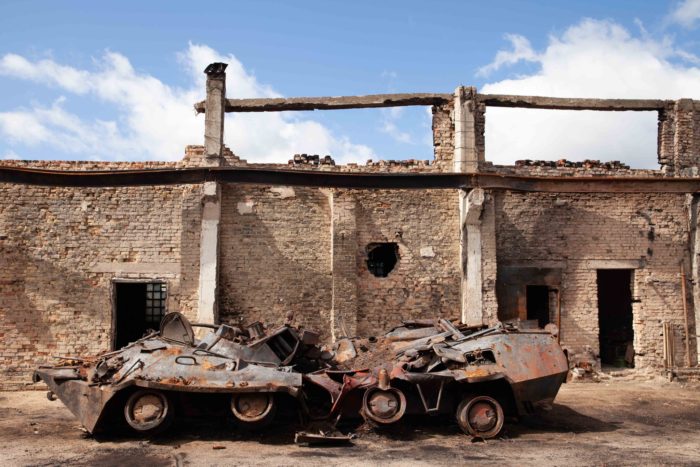Like everyone else on my team, I work around blackouts day after day. An American journalist, I have chosen to be in Ukraine and I am no stranger to blackouts. In San Francisco, power outages happen regularly due to network issues and technical problems. In Ukraine, power outages happen for one sole reason only: the purposeful destruction of Ukrainian critical infrastructure by the continuous airstrikes of the Russian Federation. Currently, 50% of Ukrainian energy infrastructure is damaged after the latest Russian attacks on November 15 and 16. To finish an article in California, I can drive a few blocks and find a Starbucks. In Odesa, in November 2022, it is an entirely different story. The Kremlin relies on daily hardship and weaponized natural exhaustion to use it as yet another tool in the hybrid war.
A day in the life of a journalist in Odesa, November 2022
At 9.30 am, during our staff meeting Zoom, the light goes off. I switch to my mobile Internet but it is patchy and I can't hear my co-workers. No idea what my editor is telling me to do today. It is also dark because outside it is almost freezing, I have no central heating and the radiator is not working without electricity. So, pillows on the windows and more LED candles for light. It would do for a romantic evening--but it is Monday morning and I need to compile and edit a daily report, write two articles with images and maps, edit videos for Twitter, and connect to Byline Times for a podcast.
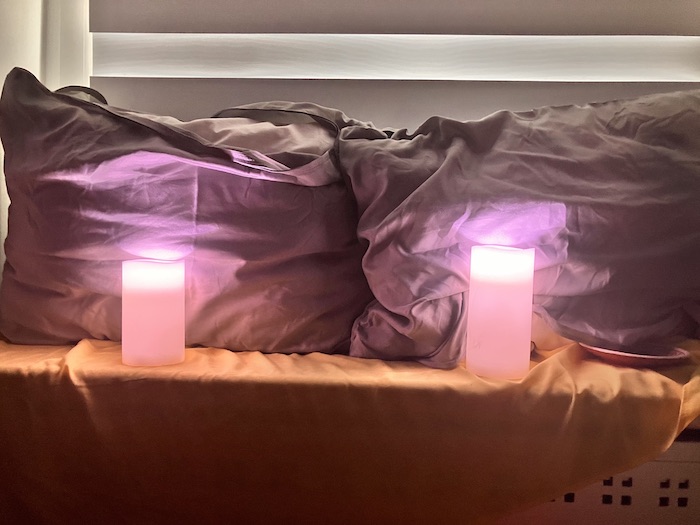
I have everything necessary to get around the dark apartment ready because last week we didn't have power for three days. The most necessary things are lined up on the desk: a LED lamp, a LED candle, a real candle, and a lighter.
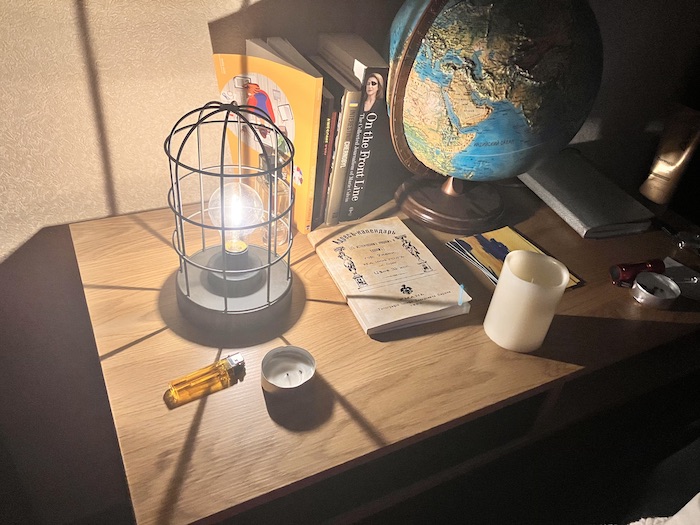
I wear several layers of warm clothes, a scarf, and fingerless gloves.

My mobile Internet is not strong enough for anything other than simple edits and texts, so I am going outside to look for a place that has light. I can't take a shower because there is no hot water. I also can't do laundry: the clothes that I wore to the field trips in Kherson are still waiting to be washed. Outside it is raining and there are no traffic lights so crossing the street is an adventure. It is like Wild West here and loud honking is popular but not efficient.
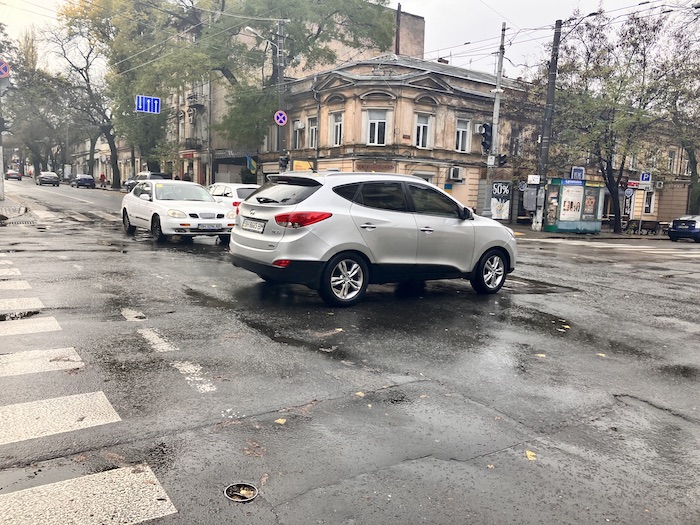
No buildings around have lights on and the street is buzzing with generators. It sounds more like a helicopter landing. A new store has opened across the street but it is dark inside and I see someone with a flashlight inside.

I feel sad for the new owners: they worked hard for two weeks to stock the store and decorate it with love. Opening a business during the war is hard enough. Last week, the Russian military launched the largest missile attack on Ukraine since the beginning of the war. All cafes I find are working off generators and, while it is warm and cozy inside, the Internet is not working so I cannot work from there.
I find a place that, by some miracle, has both power and the Internet. The owner is okay with me working there and using their power outlet. I tell them that I will write about them on social media and in the article but they ask me not to do it. "People are really on the edge and might get too jealous that we still get power even though it is pure luck," says the owner. "We don't know why we have electricity and we can lose it at any moment."
Quite a few people are at the cafe. A woman at the table next to me orders a glass of red wine and the man orders cognac. It's 2 pm but they can't work: everything is down. People at the table behind me are waiting for the banks to open. We are used to stores and banks being closed during an air raid but that usually lasts for thirty minutes, sometimes an hour. Last week, we had a five-hour-long air raid. When the power is down, the whole day can be wasted. Administrative offices are closed. The stationary store across the street closed early. I can not reach my friends: I think they lost their signal.
It starts to get dark by 4.30 pm. People waiting for the bank to open leave: the bank won't work today.

I am staying to work till 8 pm when the cafe closes. Since I am using their power and Internet, I order three coffees, an omelet for lunch, and a piece of divine cake for dinner. It ends up being way more expensive than I usually spend on food. Last week, I blew my budget working from cafes. Before leaving, I ask the waiter for some hot water for my thermos, to drink at home.

A lot of people have gas and central heating at home and it is easier to deal with blackouts in such households. In a place like mine, though, where everything depends on power, making a cup of tea or a hot meal is not possible.
https://twitter.com/ZarinaZabrisky/status/1593319323300503556
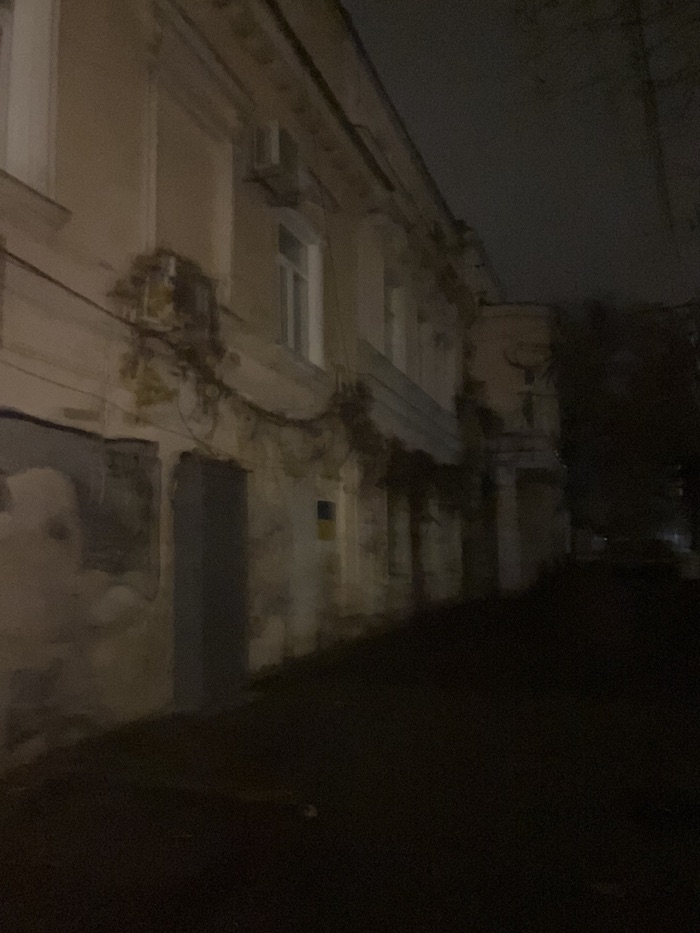
It is pitch dark outside but, like many people, I have a couple of flashlights in my pockets. I even have a light that I can put on my head, miner style. My best friend gave it to me. Candles and lights are the best gifts these days.

Finally, I find cafe Pepe which runs on a generator and has no Internet but baristas Petya and Lisa let me use their own Internet. They don't have power at home but they charge their phones in the cafe. Today, Lisa explains, they could not make coffee for half of the day. The light is flashing and the Internet is super-slow but faster than at my place and it is warm here. Petya and Lisa light candles, laughing away with some regulars.
The spirits are high. On the weekend, Petya tells me, families come to cook together and there is a super-popular masterclass on making pirogi. They buy produce at Privoz, a famous local farmer's market. It doesn't matter if the lights are off--the generator is working. They let me stay past the closing time to finish this article. I buy a slice of pie, even though I am not hungry at all anymore, to take home.
After taking out Ukraine’s energy infrastructure, Russia tries to incite anti-blackout riots
Related:
- Massive power outages in Ukraine after Russian most massive-yet missile strike on energy infrastructure
- Power, night illumination cuts all over Ukraine after Russian strikes on energy infrastructure
- Russian missile strikes cannot cause total blackout – CEO of Ukraine’s largest power company
- Ukraine braces for its hardest-yet winter amid Russian strikes on energy infrastructure




